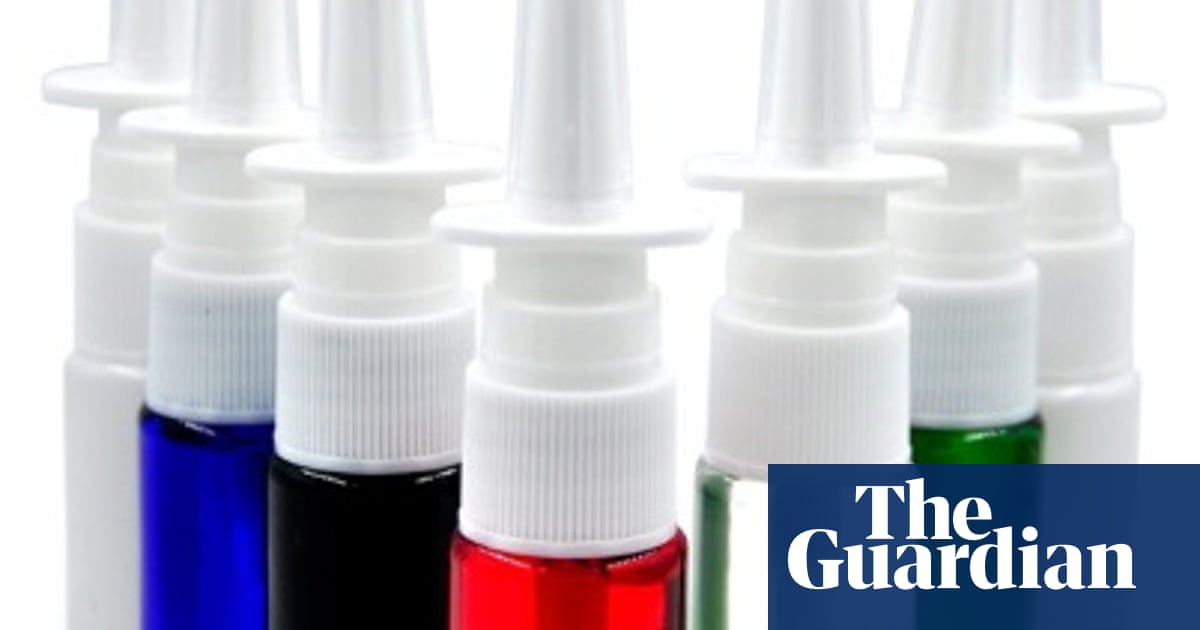Nasal tanning sprays linked to cancer and respiratory problems and other unsafe cosmetic products pose one of the biggest threats to consumers, trading standards officers have warned.
Demand for these “dangerous and unregulated” tan-enhancing sprays, which is being driven by influencers on social media, could mirror the rapid rise of youth vaping, the Chartered Trading Standards Institute (CTSI) said.
The sprays contain substances such as melanotan 2 – a synthetic hormone not approved for use in the UK – which can cause nausea, vomiting, high blood pressure, kidney problems, and an increased risk of melanoma skin cancer.
The sprays are designed to be applied to the nostrils, where they deliver melanotan 2 directly into the body. This chemical stimulates the production of melanin, which darkens the skin, and while it can supposedly work without UV exposure, its effects are enhanced when used alongside sun exposure or tanning sun beds.
Trading standards officers also raised concerns over the rise of flavoured nasal tanning sprays, which include peach, bubble gum and lime, which may make them more attractive to young people.
The self-tan market was valued at £582.2m and is projected to grow to £746.3m by 2027, according to THG Labs’ Sunless Tanning Trend Report, raising concerns that nasal tanning sprays could capitalise on this booming demand, despite the health risks.
Videos on social media show tanned users promoting the products. The CTSI said many of these “unscrupulous sellers” are also marketing tanning drops and tanning gummies, designed to be ingested.
Richard Knight, the lead officer for cosmetics and beauty at CTSI, urged consumers to question the claims made by influencers online, warning that many may not fully understand the risks themselves.
He said: “Unlike cosmetic products, nasal tanning sprays are unlikely to have had expert safety assessment, and use of relevant health warnings and instructions for safe use are rare. This means that no one, including influencers, can truly know the risks of using these quasi-medical potions.”
Although it is illegal to sell medicinal products containing melanotan 2 in the UK, the tanners are marketed as cosmetics, meaning they fall outside the regulatory remit.
The products, which often have no ingredients list, are usually sold for about £20 each, with “extreme flavoured nasals” marketed at £30 each and cheaper alternatives for as little as £25 for two.
Users have reported severe allergic reactions to the products, and there have been cases of hospitalisation.
Edith Eagle, from King’s Lynn in Norfolk, was admitted to hospital after she suffered a serious reaction to a nasal tanning spray she bought online.
She bought the product hoping that they would give her a quick and easy sun-kissed look ahead of her holiday in April 2023, but told the BBC she felt as if she was “suffocating” and “drowning inside her own body”.
Knight said Eagle’s story should be a cautionary tale of “what can happen when putting unregulated products into our bodies”.
Susanna Daniels, the chief executive of Melanoma Focus, said: “We’re becoming increasingly concerned about the use of both nasal tanning sprays and tanning injections and their potential links withmelanoma skin cancer.
“These unregulated and illegal products not only pose serious health risks but also encourage harmful behaviours, particularly among young consumers. We urge the public to consider the long-term impacts on their health and avoid using these substances altogether.”
The CTSI advised consumers to opt for safer self-tanning options, like lotions or sprays applied to the skin, which are regulated under the UK Cosmetics Regulation and come with clear user guidelines.
